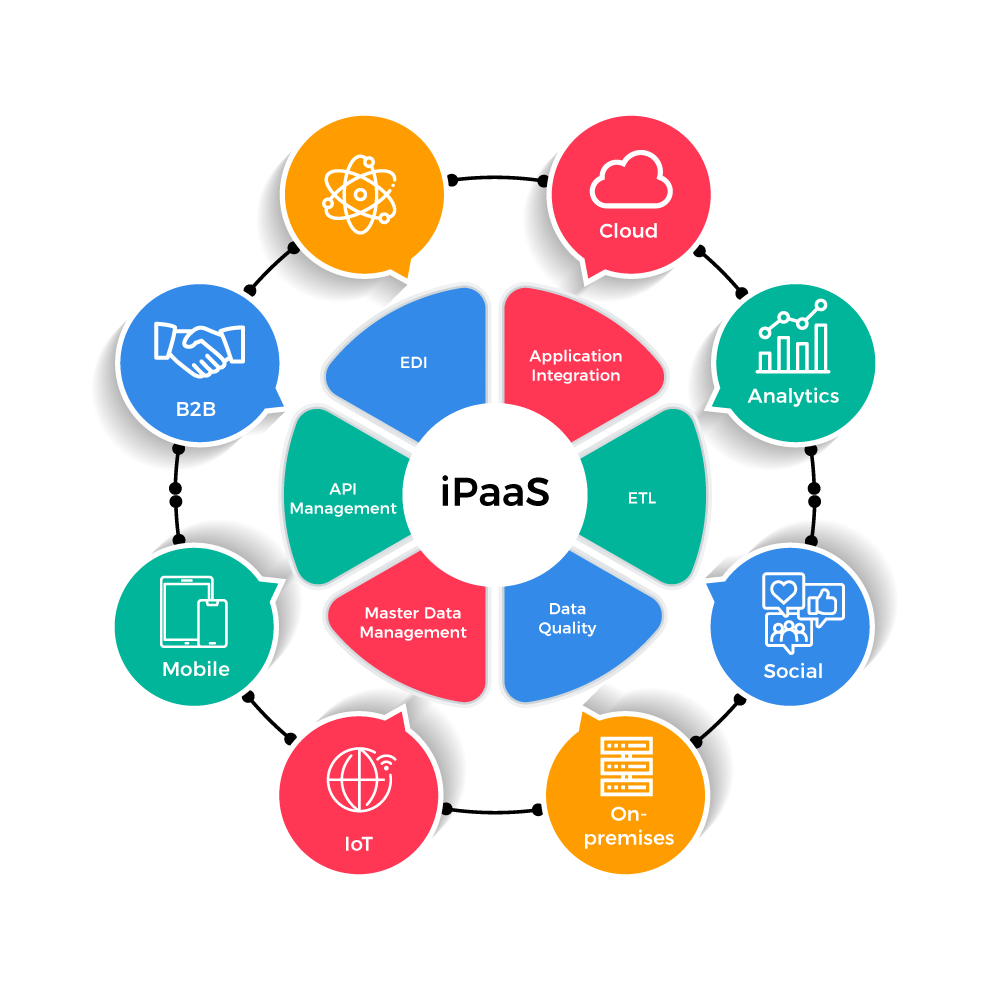Do you know businesses prefer using both NetSuite and Salesforce these days? But why? Integrating these two powerful platforms can unlock enormous potential. NetSuite is one of the best enterprise management systems with a great capability in ERP and Salesforce is one of the most advanced CRM. Thus, integrating those systems helps businesses optimize the flows and make data accurate and integrated with customers.
This integration gives your team full access to customer data stored in NetSuite—such as order history, payments, and communications—all in one place. The salesforce dashboards and reports are easily customizable to provide you with the most up-to-date sales and future estimations information. As a result, business owners can ensure a short time cycle for ROI with the automation of such critical functions as order management and procurement to pay.
Overview of NetSuite and Salesforce
NetSuite and Salesforce are two of the biggest Cloud-Based business software solutions in current use. NetSuite is a highly integrated ERP application for handling standard business processes, including accounting, inventory, orders, & customer relationship management. Salesforce, in turn, is a strong CRM system aimed at performing customer relational, sales, and marketing activities.
Different Methods of NetSuite Salesforce Integration
Here are three key ways to integrate NetSuite and Salesforce:
1. iPaaS Integration ([Integration Platform as a Service]

iPaaS (Integration Platform as a Service) also provides cloud integration solutions such as DCKAP Integrator, Boomi, Celigo, and Jitterbit. These platforms offer pre-built connectors that make it easier to integrate between NetSuite and Salesforce.
It offers the following benefits:
- Efficient integration configurations with a pre-defined customer-specified format
- Ease of data transfer in both systems
- Seamless customization as per the business requirements
2. NetSuite Salesforce Integration Through RESTlet
If you require more specific integration, it is recommended that you make use of NetSuite’s RESTlet tool. It is also referred to as the NetSuite connector for Salesforce and is quite flexible since it can be adjusted based on your needs and requirements.
When using RESTlet for integration, here are some key points to keep in mind:
- Perform significant tests to check if the integration meets the desired results
- Ensure no important financial data is compromised and it stays in its natural state
- Consider the protection of data and its security as the principal goal
- Undertake frequent modifications as RESTlet enables scripting and client code modification
- Consider the needs of the business to the kind of approach that is best suited
3. NetSuite Salesforce Integration Through Native Applications
In this integration approach, native integration implies the utilisation of existing native applications and tools that help Salesforce and NetSuite to interconnect. A great example of this capability is Breadwinner, a Salesforce-native app.
Breadwinner provides simple integration of Salesforce with financial solutions, including NetSuite. It is developed and integrated within the Salesforce environment hence, availing itself to all the features offered by the Salesforce environment consistent with the nature of tools available to its users.
Streamline Your Path with Seamless Integration
NetSuite and Salesforce integration mean organizations can pass information between the ERP and CRM systems. It also cuts time and costs related to data entry and minimizes the occurrence of error occurrences, while all departments inclusive of finance, sales, and customer support get to pull or have updated information. Here are some key benefits
- Streamline sales and accounting processes: Using integration to move records directly from NetSuite to Salesforce eliminates the need for manual data transfer reducing the likelihood of errors.
- Unified view of customers and sales: Integration allows two data sets of customers and sales to be kept in one place, improving the decision-making of the sale and the marketing strategy.
- Boost efficiency: By automating workflows and reducing manual tasks, your team can focus on more strategic initiatives, leading to higher productivity.
- Enhance customer service: Sales teams can easily access crucial customer information—like order history and payment details—from NetSuite while speaking with clients. This enables more personalised and efficient service.
On top of these advantages, integrating the two platforms can also:
- Strengthen business insights: The integration of both systems enables them to provide enhanced insights for reporting and creation of dashboards thus, providing deeper insights into the operation of businesses.
- Increase automation: Automating tasks such as creating customer accounts or sending invoices directly from NetSuite helps save time, reduce costs, and lower the risk of errors.
For mid to large-scale businesses looking to optimise operations, improve data visibility, boost efficiency, and enhance customer service, integrating NetSuite with Salesforce is a smart investment.
How to Integrate Salesforce with NetSuite?
To connect NetSuite with Salesforce, follow these steps:
1. Define Your Integration Strategy: Begin by outlining a clear integration strategy to ensure that only the most critical data and processes flow between NetSuite and Salesforce.
- Identify types of information: Classify data between the systems, such as customer profiles, orders, invoices, or financial data. Prioritize data that will have the biggest impact on decision-making and operational efficiency. By setting these foundational guidelines, you’ll create a roadmap for a smoother and more efficient integration that aligns with your business goals.
- Select an Integration Tool: Choose an integration solution that best fits your business needs, such as Celigo. Also, consider the factors like scalability, ease of use, customization options, and budget when making your decision to ensure seamless data flow and efficient operations.
- Third-party Integration: There is integration using third-party tools which can also be used in the process. These options usually give more convenience and choices and can be harder to implement besides, they are more costly.
2. Configure the integration: Once you have selected a technique, there are always a few prerequisites like data mapping that you must set before final implementation. If you carefully set up data fields and mappings, it will ensure that data syncs correctly between platforms.
3. Test the integration: This is good to configure and leaves your environment safe and secure but it must be tested so that everyone can be assured that all is well. In this step, sample data is synchronised and one has to ensure that data is transferred effectively to the two platforms.
4. Deploy the integration: When all tests are completed successfully, you can deploy the integration to your team. Ensure it is accessible to the users and also avail training to the users on how to work with it most efficiently.
Also Read: NetSuite Vs. Salesforce- A Detailed Comparison Guide
Key Benefits of Integrating NetSuite and Salesforce
Since NetSuite and Salesforce are integrated your business can be more effective and have efficient data processing of leads, orders, and invoices. These platforms are well known for enhancing the firm’s market stand and improving customer links. Additionally, their integration brings several other valuable benefits, including:
1. Simplifies Business Processes
NetSuite integrates seamlessly with Salesforce, simplifying and streamlining business operations. It connects an organization’s core functions—such as sales, finance, and customer management. This powerful integration provides real-time data, enabling more informed and timely decision-making. Thus, the continuous flow of information ensures that all departments stay aligned, promoting efficient processes, driving sustainable growth, and enhancing overall operational performance.
2. Increases Performance and Enhances Cash Flows
By integrating NetSuite and Salesforce, the change will help to enhance the company’s cash flows as well as the performance of the employees. The accounting software assists the NetSuite accounting professionals with more reliable financial reports, tracking of expenses, and other bookkeeping requirements. On the other hand, Salesforce integrates various departments into a single interface hence, facilitating clearer information exchange which increases the productivity of the team.
3. Insights of Customer Database
The link between NetSuite and Salesforce is more advantageous to businesses as they get independent customer information. It provides accurate information about the clients and facilitates the handling of renewal subscriptions, referrals, outstanding orders, and possibilities of upselling or cross-selling. Such easy access to detailed customer information makes it easy for companies to respond to their customer needs hence enhancing customer management.
NetSuite and Salesforce integration enhances customer experience by centralizing customer data for faster, more personalized responses, ensuring seamless interactions and satisfaction.
Challenges In NetSuite Salesforce Integration & How to Overcome Them
During the integration of Salesforce with NetSuite, developers usually face several issues that affect normal functioning and may slow down the progress. Every platform is incredibly complex and has a vast number of unique advancements- all of this revolutionises businesses.
Based on the insights, one needs to manage the following issues so that integration can be achieved efficiently.
1. Gaps in Planning:
Integration always takes time and thus, data integration is not an event that occurs simultaneously. Achievement of goals in this area depends on good planning. Precisely, here it is necessary to understand your business and determine its processes, and here it is necessary to recognize possible intricacies. When those aspects are defined, your NetSuite Integration Partner can work out an intricate schedule and decide on the best approach to implementation.
Solution: As a professional NetSuite Solution Provider Partner, you can use metrics and analytics to establish business goals for clients. This can be done through initial planning, to ensure all parties harmonize with the same goal. From this strategic approach, it becomes easy to achieve an ideal integration process that entails minimal interference in daily operations.
2. Data Mapping and Duplication
Data transfer from Salesforce to NetSuite and vice versa is one of the critical elements of integration. It is also an important aspect that should be done for the network to function properly.
Solution: Hire experienced developers and make sure when mapping fields of different databases that they do not want to overwrite or duplicate data. Additionally, take time to design solutions to problems that may occur in the future. It will be useful in reducing and avoiding errors and hence making the data integration process as effective and as efficient as possible.
3. Barriers to Data Integration
Numeracy is a significant challenge affecting the Salesforce NetSuite ERP integration because data volume and file sizes are extraordinary. These are limitations that one should be aware of before starting the integration process so that downtimes do not affect business continuity.
Solution: Try developing a built-in NetSuite ERP, to work with significant volumes of information and properly carry out your organisational vision without interference.
4. Scheduling the Integration Process
The timing of the Salesforce NetSuite ERP integration activities is paramount to mention scheduling and conducting the integration properly. There is always going to be pressure on organizations to take the big-bang integration approach or to introduce the system through a step-by-step process.
Solution: Set the timing as per the business requirements and its preparedness to undergo the process. This process shows that proper scheduling of integration minimises the areas that are left uncovered, hence facilitating proper integration and transition.
5. Lack of Data Security
These include the issues of data security that are always a priority during the integration exercise of the Salesforce NetSuite ERP system. Lack of proper security may condemn organisations’ operations to frequent interferences, low productivity and insecurity.
Solution: You must be certain that all the business data is backed up completely and safely all the time. Ensuring data security measures also has great benefits for organisations; they help ensure financial sustainability and avoid the consequences of possible improper business interventions.
Why Choose VNMT for Salesforce NetSuite integration?
With VNMT, you take advantage of rich experience and seek quality-assured optimal Salesforce-NetSuite integration solutions. Our company is a leading NetSuite development company dealing with CRM services Our team of NetSuite consultants and developers will make you go through the best integration services.
Furthermore, if you have to implement NetSuite and Salesforce using Celigo, or through REST APIs, you can connect with VNMT. Our team focuses on delivering tailor-made integration solutions that enable you to connect your critical business applications such as NetSuite and Salesforce for growth. Through integrating important processes including the sale, services, accounting, and tracking of inventories, VNMT guarantees the interconnectivity of platforms to offer you timely and accurate data. Our tailored integration services help to minimize data isolation, automate repetitive processes, and improve interricular workflow, making your business grow smoothly.

Conclusion
Data orchestration has become one of the main success factors in today’s business environment. With both NetSuite ERP and Salesforce CRM backing up your business, integration becomes a crucial catalyst for transforming your operations. With solutions like Celigo netsuite salesforce integration, developers are endowed with the means that make the integration process easier and faster.

















